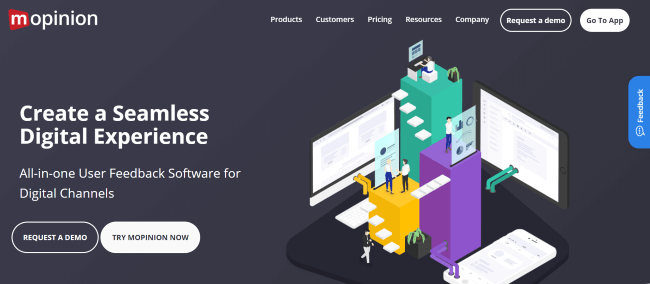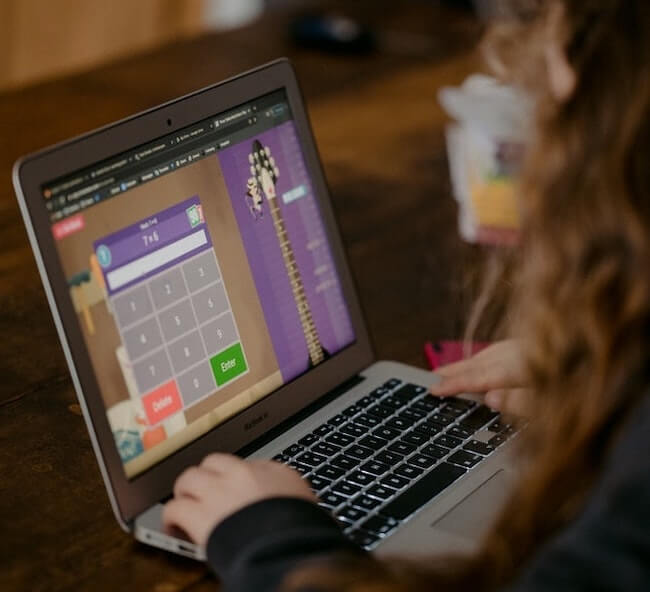It’s been a year since the first lockdown and a lot has changed, especially in terms of how we conduct our schooling programs. We’re seeing more and more companies and educational institutions switch over to e-learning or ‘hybrid’ education; a type of education which consists of a combination of offline lessons in the classroom and online classes. As a result of this newfound demand, e-learning is now undergoing a major, accelerated development. Forbes estimates that the e-learning market will generate sales of no less than 325 billion by 2025. This represents a growth of 200% compared to 2015.
In this post, we look at why e-learning is increasingly becoming the preferred method of learning and how to get the most out of your e-learning platform. From the different ways in which you can apply e-learning to how you can optimise your platform, we’ve got you covered.

What are the benefits of e-learning?
But first, let’s look at why e-learning is so popular and successful by addressing the benefits of e-learning:
- Good for time savings and productivity. Users can access e-learning from wherever and whenever.
- Cost-effective. There is no classroom, teacher or books required.
- Tailored. Users can learn at their own pace.
- Op maat gemaakt. Je leert in je eigen tempo.
- Insight into progress. It is easy to keep track of whether you’re making progress.
- Always up-to-date. You can easily make changes to the teaching material.
- It stimulates interaction. It is sometimes easier (and faster) to respond online than face-to-face.
- Qualitative and user-friendly. An online environment can be improved thanks to user feedback.

COLLECT, ANALYSE AND MANAGE USER FEEDBACK
Experience the benefits of user feedback and how it can help optimise your e-learning environment.
In addition to all the advantages, there are also advocates of the classic, offline teaching method. They mainly see challenges and obstacles in e-learning…
What are the pitfalls of e-learning?
- Requires more independence, while some need more guidance.
- Requires self-discipline.
- Impersonal. You often don’t see or speak to anyone.
- Not all content is suitable for e-learning.
Now let’s take a look at what e-learning is used for and who uses it. After all, e-learning is no longer used only by training institutions.
Business and e-learning
E-learning has been used in the business world for years. In fact, a wide variety of business branches have now found their way in offering and building up additional knowledge in an online environment. For example, IBM saved 200 million euros by switching to e-learning and it is expected that more and more companies will make this switch. E-learning is also part of the major digital transformation that many companies are now experiencing.
In business, e-learning is commonly used for:
- Onboarding. Every new employee gets acquainted with the company in this way.
- Product presentation for customers. Take your customers through certain steps and show what you have to offer.
- Skill training. Employees can follow a specific training and/or course that is relevant for their work.
- Guaranteeing and passing on knowledge. The knowledge in a central platform is easy to update and employees can be tested online for their current knowledge.
Product presentations from a distance
Despite the fact that many businesses are no longer visiting their customers, they still want to show these customers the best side of their business. Fortunately these businesses can present and allow their customers to experience their products and services online. In fact, this is the closest they can really get to a physical meeting with customers. It also serves as a great opportunity to ask customers for feedback.
You can use an email with a feedback form for this or you can place the feedback forms in the online presentation by means of a button or trigger. Ask your customers if they have reached their online goal (Goal Completion Rate) so that you know if you shared the right information. This way you learn from their experiences and you can make the product presentation or demo experience even better for these customers.

Learn how to DIY with e-learning platforms
E-learning for fun
In addition to education and business, e-learning is also used for personal development. Especially now that there are so many restrictions and so much has been closed, many people are finding that they finally have time for a new hobby.
Suppose you want to renovate your house, but you’re all thumbs. Then you can, for example, follow an online course at NTI during which you learn how to perform common tasks in and around the house. The teaching material consists of explanations, images and personal guidance. You can even complete your course with an exam and obtain a certificate.
Maybe you want to learn how to arrange flowers, because you like to brighten up your home with beautiful flower arrangements. You can take an online course for this, where you can work at home with flowers and other materials. You send in pictures of what you have created and your teacher gives you feedback. Oftentimes, to increase the quality of the online course, students are asked about their experience. Is the curriculum clear to everyone? Are the lessons structured logically? In this blog you can read how to measure the UX.
Do you want to know what the added value of content or a particular teacher is? By collecting feedback you get answers to these kinds of questions. For example, ask your students to assign a score to the contact moments with the teacher, so that you gain insight into the added value of the personal guidance of the course.

Homeschooling for primary school students
E-learning in education
In the past year, e-learning has gained even more ground in education. Unfortunately this was out of necessity due to the virus, but these developments nevertheless resulted in major steps forward in the field of e-learning. Not only do many colleges and universities work with e-learning platforms, but secondary schools and even primary schools have also switched to this way of teaching. In this way, even the younger children have grown accustomed to participating in online lessons. Now that the majority of students have experienced online lessons, the bar has been raised a lot higher. Read more about what e-learning service Squla is doing to improve its services.
With so many younger people having to do their homework online now, it’s therefore also important that these learners can switch devices easily. Students often use their mobile phones for a lot of their courses so what you could do to monitor this usage is gather mobile user feedback. This enables you to understand what goes right or wrong within your app, giving you insights into the user experience and therefore providing you with the means to improve your platform. Want to learn more about measuring mobile satisfaction? Be sure to check out this post.

The power of feedback
As you can see, we can no longer do without e-learning nowadays. For many people this is really the solution to learn something new or to brush up on their existing knowledge. If you really want to take full advantage of the benefits of e-learning, make sure you know what your participants expect. By collecting user feedback during and after the course or training, you gain insight into how participants experience it and whether it meets expectations. View examples of UX feedback forms here. Learn from the feedback and discover what needs to be improved.
Keep an eye on this blog, because we will dive deeper into the possibilities that e-learning offers in the near future.
Want to learn more about Mopinion’s all-in-1 user feedback platform? Don’t be shy and take our software for a spin! Do you prefer it a bit more personal? Just book a demo. One of our feedback pro’s will guide you through the software and answer any questions you may have.Ready to see Mopinion in action?







